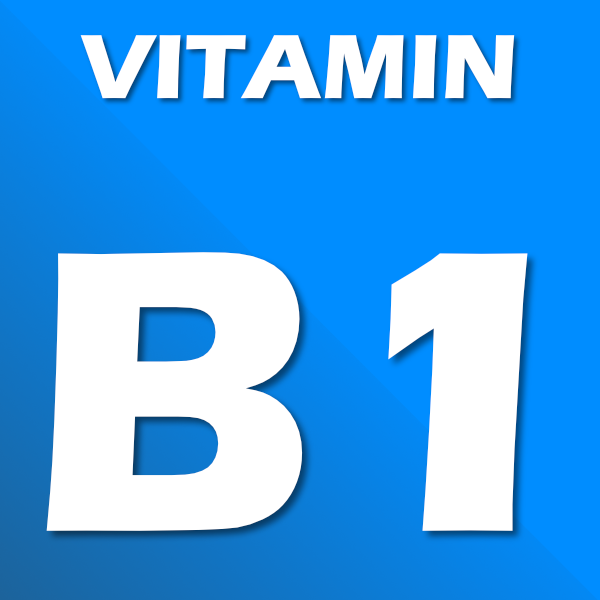
Vitamin B1, also known as thiamine, is a water-soluble vitamin that is essential for human health. It is involved in a wide range of bodily functions, including the metabolism of carbohydrates, proteins, and fats. Vitamin B1 is also necessary for the production of red blood cells, hormones, and neurotransmitters, and it plays a role in maintaining a healthy nervous system.
Vitamin B1 is found in a variety of foods, including meats, poultry, fish, eggs, dairy products, whole grains, legumes, and some fruits and vegetables. It is also available as a dietary supplement.
Vitamin B1 is essential for maintaining good health and preventing a range of conditions. Some of the key benefits of vitamin B1 include:
Supporting the immune system: Vitamin B1 is involved in the production of antibodies, which are proteins that help the body fight off infections. A deficiency in vitamin B1 can weaken the immune system and increase the risk of illness.
Promoting healthy skin: Vitamin B1 is involved in the production of fatty acids, which are necessary for maintaining healthy skin. A deficiency in vitamin B1 can cause dry, scaly skin and a condition called beriberi, which is characterized by a red, scaly rash.
Supporting the nervous system: Vitamin B1 is involved in the production of neurotransmitters, which are chemicals that transmit signals in the brain. A deficiency in vitamin B1 can cause changes in mood and may contribute to feelings of anxiety and depression.
Reducing the risk of heart disease: Vitamin B1 is involved in the metabolism of cholesterol and fatty acids. A deficiency in vitamin B1 can increase the risk of developing heart disease, a condition that affects the heart and
Here are 10 foods that are high in vitamin B1:
- Pork: A 3-ounce serving of pork contains 0.8 milligrams of vitamin B1, which is about 53% of the daily recommended value.
- Sunflower seeds: A quarter cup of sunflower seeds contains 0.5 milligrams of vitamin B1, which is about 33% of the daily recommended value.
- Wheat germ: A quarter cup of wheat germ contains 0.5 milligrams of vitamin B1, which is about 33% of the daily recommended value.
- Whole wheat bread: A slice of whole wheat bread contains 0.4 milligrams of vitamin B1, which is about 26% of the daily recommended value.
- Brown rice: A cup of cooked brown rice contains 0.4 milligrams of vitamin B1, which is about 26% of the daily recommended value.
- Spinach: A cup of cooked spinach contains 0.2 milligrams of vitamin B1, which is about 13% of the daily recommended value.
- Black beans: A cup of cooked black beans contains 0.2 milligrams of vitamin B1, which is about 13% of the daily recommended value.
- Oatmeal: A cup of cooked oatmeal contains 0.2 milligrams of vitamin B1, which is about 13% of the daily recommended value.
- Cabbage: A cup of cooked cabbage contains 0.1 milligrams of vitamin B1, which is about 7% of the daily recommended value.
- Carrots: A cup of chopped carrots contains 0.1 milligrams of vitamin B1, which is about 7% of the daily recommended value.
It's important to note that the daily recommended value of vitamin B1 varies based on factors such as age, sex, and overall health. It's always a good idea to consult with a healthcare provider to determine the appropriate amount of vitamin B1 for your individual needs.
A deficiency in vitamin B1, also known as thiamine, is rare, but it can occur in people who have limited access to a varied and balanced diet. Symptoms of vitamin B1 deficiency can include:
- Fatigue and weakness
- Loss of appetite
- Nausea and vomiting
- Diarrhea
- Dry and scaly skin
- Cracks and sores at the corners of the mouth
- Beriberi, a condition that is characterized by a red, scaly rash
- Sensitivity to light
In severe cases, vitamin B1 deficiency can cause anemia, hair loss, and swelling of the mouth and throat. It can also lead to a condition called Wernicke-Korsakoff syndrome, which is a neurological disorder that causes memory loss, confusion, and problems with muscle coordination. However, these complications are rare and typically only occur in people who have severe and long-term deficiencies.
If you think you may have a deficiency in vitamin B1, it's important to talk to a healthcare provider for a proper diagnosis and treatment plan. Your provider may recommend dietary changes or supplements to help restore adequate levels of vitamin B1 in your body.
- Hits: 1269


